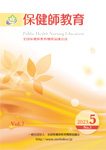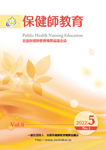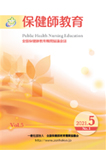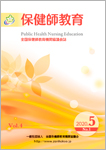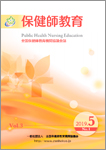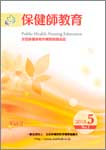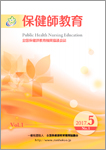- HOME
- About JAPHNEI
About JAPHNEI
What is JAPHNEI?
The Japan Association of Public Health Nurse Educational Institutions (JAPHNEI) is
an organization that works to ensure the quality of public health nurse education in Japan.
Founding, mission, and activities
Founding
- October 1980
- Founded
- April 2011
- Incorporated as a General Incorporated Association
Mission
To improve public health by enhancing public health nurse educational institutions across Japan and enriching public health nursing education.
Activities
- Enhance and strengthen public health nurse educational institutions
- Serve as a liaison council for public health nurse educational institutions
- Train faculty of public health nurse educational institutions
- Conduct research on topics such as the system and programs of public health nurse education
- Evaluate and accredit educational programs for public health nurses
- Collaborate and coordinate with related groups inside and outside Japan
- Carry out social impact projects to improve public health and promote healthy living
- Perform other tasks required to fulfill our mission
Action plan for 2023
This corporation aims to develop educational institutions for public health nurses nationwide and enhance public health nursing education, thereby improving public health. To achieve these goals while also considering national trends, we will work to ensure the quality of licensed public health nurses by examining their curriculum and education system, verifying their educational output, and improving teachers’ qualifications and the quality of national examination questions. We will also promote activities designed to enhance nursing education and raise the education level of public health nurses as an additional part of the curriculum.
Past activities illustrate the requirement for providing effective public health nursing education. Thus, the Instruction, Curriculum, Education System, and National Examination committees will work together with the relevant organizations to explore and systematize public health nursing. In particular, we will enhance systematic training based on faculty career ladders and consider an evaluation and accreditation framework to ensure the quality of public health nursing education. Moreover, we will respond quickly to member school-related issues, largely resulting from social changes owing to computerization and globalization. Therefore, public relations and international committee will enhance traditional information dissemination and strengthen a system for sharing educational materials, focusing on aggregating and disseminating information on diverse educational methods. Editorial committees will publish the council magazine Public Health Nursing Education to domestically and internationally promote the dissemination of knowledge and findings. To locally and societally address current health issues, we will support member schools by implementing block activities and developing educational methods for public health nurses’ health crisis management competency, active participation in commissioned projects, and lobbying-related institutions and organizations.
II. Committee policy1. Instruction Committee
- Plan, implement, and evaluate training seminars for faculty members who teach public health nursing
- Evaluate and collaborate within blocks to enhance training based on instructor’s career ladder
- Examine and conduct the research grant system
2. Curriculum Committee
- Examine public health nursing techniques and inform member schools about the requirement for technical education
- Facilitate information dissemination to educational settings regarding latest educational content and methods
3. Education System Committee
- Develop curriculum promotion measures to foster practical public health nursing through additional education at graduate schools and universities
- Develop a revised draft for a standard to evaluate the public health nursing curriculum
4. National Examination Committee
- Inspect the 110th National Examination Questions and examination venue and provide suggestions to the Ministry of Health, Labour and Welfare
- Support disseminating new questioning standards
5. Public Relations and International Affairs Committee
- Assess the website, including the English version, and use it effectively
- Use e-mail newsletters to share information with member schools.
- Recruit new members through public relations activities
- Examine and conduct systems to share public health nursing educational materials
6. Editorial Committee
- Issue and publish Volume 7 of the digital journal
- Build and operate a smooth peer review system
7. Educational Evaluation Preparatory Committee (Special Project)
- Consider promoting sectoral certification evaluation in future public health nursing education
8. Health Crisis Management Response Committee (Special Project)
- Assess the current situations and challenges of health crisis management in public health nursing education and make recommendations to improve education
- We will share the current situation and issues based on social context and trends related to public health nursing education. Training and information exchanges will be conducted to improve the quality of public health nursing education. In addition, we are committed to sharing information and promoting activities among schools, across blocks, and throughout the country.
Journal of the Japan Association of Public Health Nurse Educational Institutions
Second publication: May 31, 2023
Language: Japanese
Table of contents (2023, Vol.7. No.1): Foreword, Special Lectures, Project Reports, Committee Activity Reports, Block Activity Reports, Research Article, Activity Report
Table of contents(PDF)
Full Issue(PDF)
Second publication: May 31, 2022
Language: Japanese
Table of contents (2022, Vol.6. No.1): Foreword, Special Lectures, Project Reports, Committee Activity Reports, Block Activity Reports, Research Article, Activity Report
Table of contents(PDF)
Full Issue(PDF)
Second publication: May 31, 2021
Language: Japanese
Table of contents (2021, Vol.5. No.1): Foreword, Special Lectures, Project Reports, Committee Activity Reports, Block Activity Reports, Research Article, Activity Report
Table of contents(PDF)
Full Issue(PDF)
Second publication: May 31, 2020
Language: Japanese
Table of contents (2020, Vol.4. No.1): Foreword, Special Lectures, Project Reports, Committee Activity Reports, Block Activity Reports, Research Article, Activity Report
Table of contents(PDF)
Full Issue(PDF)
Second publication: May 31, 2019
Language: Japanese
Table of contents (2019, Vol.3. No.1): Foreword, Special Lectures, Project Reports, Committee Activity Reports, Block Activity Reports, Research Article, Activity Report
Table of contents(PDF)
Full Issue(PDF)
Second publication: May 31, 2018
Language: Japanese
Table of contents (2018, Vol.2. No.1): Foreword, Special Lectures, Project Reports, Committee Activity Reports, Block Activity Reports, Research Article, Activity Report
Table of contents(PDF)
Full Issue(PDF)
First publication: May 31, 2017
Language: Japanese
Table of contents (2017, Vol.1. No.1): Foreword, Special Lectures, Project Reports, Research Reports, Committee Activity Reports, Block Activity Reports, Association Reports







